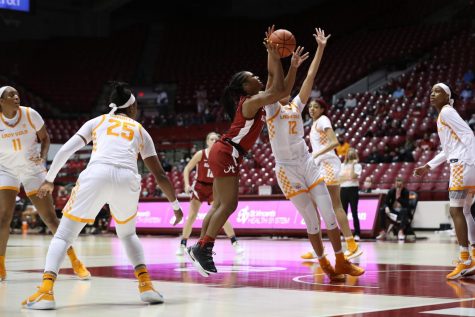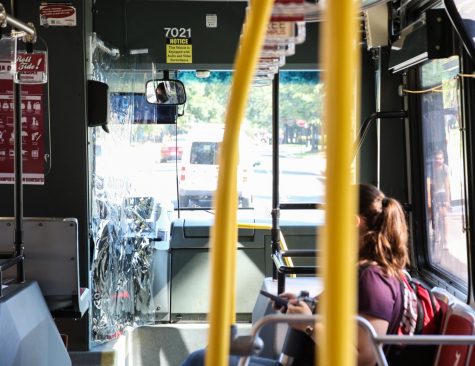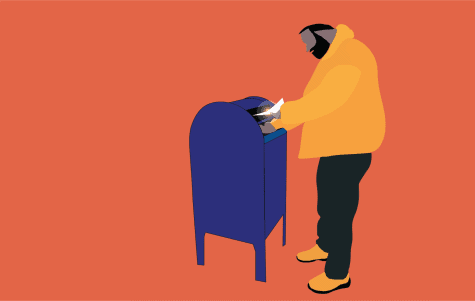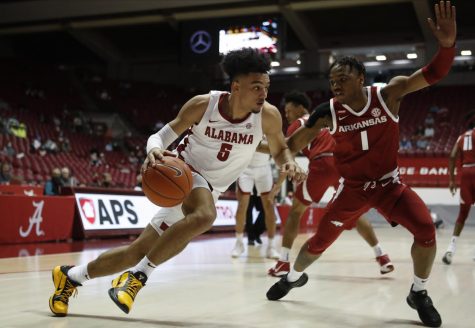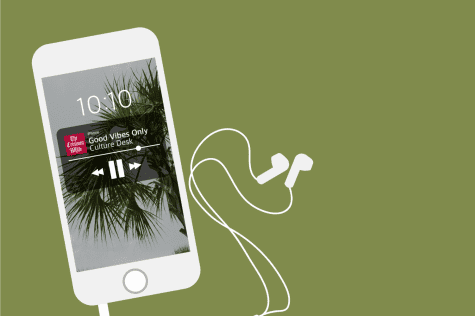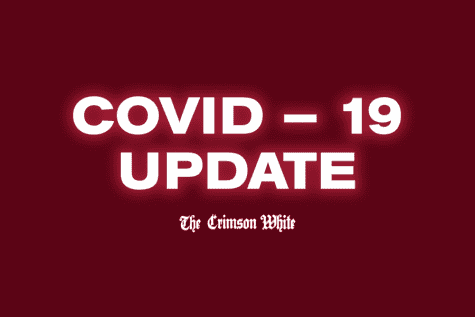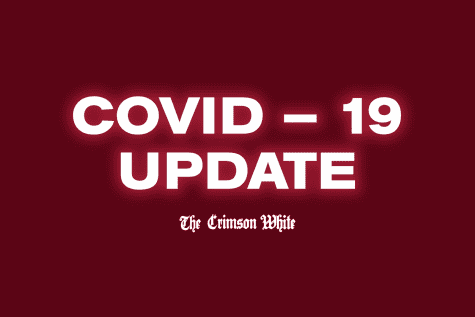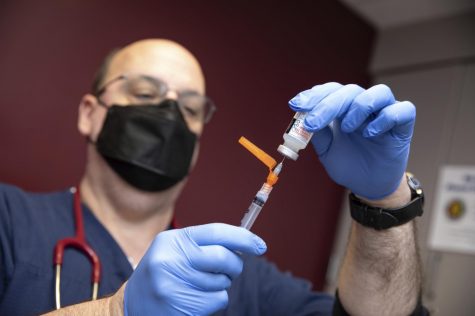The COVID-19 vaccine is here. When will you get it?
The University is currently distributing vaccines to vulnerable populations, but officials are looking forward to expanding availability.
Tracey Smith of the College of Community Health Sciences receives one of the University’s first doses of the COVID-19 vaccine.
The University of Alabama distributed its first doses of the COVID-19 vaccine to campus healthcare workers during the final weekend of winter break, four days after the College of Community Health Sciences received 3,500 doses.
For now, priority is given to healthcare providers, first responders, Capstone Village residents and employees and vulnerable populations in the community, according to the UA vaccine website. Other priority groups will be determined with guidance from the Alabama Department of Public Health (ADPH).
Beginning Jan. 15, the vaccine was offered to individuals aged 75 years and older who are University Medical Center patients, UA retirees or UA emeritus faculty. Current faculty, Capstone Village residents and Osher Lifelong Learning Institute participants who belong to this age group are also being notified.
After offering the vaccine to these groups, the University plans to prioritize faculty and staff. The timeline for student eligibility is undecided, but high-risk students who have filed with the Office of Disability Services and residential students will be prioritized.
UA Vice President for Student Life Myron Pope said the goal is to eventually provide the vaccine to the entire campus community, but vaccination is not required for employment or enrollment.
UA spokesperson Monica Watts said vaccinations are taking place on weekends, since the University’s “hard-working doctors and medical staff continue to manage regular schedules through UMC, ongoing testing and vaccinations.”
The rate of distribution has drawn the attention of faculty and staff who are not eligible for the vaccine yet. Natasha Dimova, a professor in the department of geological sciences, said she believes the vaccine should be required for faculty.
“There is no way around it since practicing physical distancing is difficult to be enforced,” Dimova said, referencing the crowd of students that gathered on The Strip after last week’s national championship win.
Faculty and staff who don’t belong to a priority group have not received further information about the timeline for eligibility.
Watts said the University “was not billed” for the vaccines being distributed.
The vaccine is free to recipients, but she said the University might charge an administrative fee of undetermined value to aid the expenses of medical staff, extended hours, facilities and other resources.
Since UA employees fall under one insurance program, the University can combine and cover the employee administrative fee centrally rather than billing to each employee’s plan. Watts said the University is still evaluating how this fee will be handled for students.
Vaccine recipients are asked to bring insurance information to their appointment, but Watts said those without insurance coverage will not be turned away.
Those who are eligible for the vaccine will be notified by email and text message and granted 48 hours to follow the instructions to schedule an appointment. Once that 48-hour window has passed, the next person in line will be notified of their eligibility.
A second dose will be administered between 21 and 28 days after the first appointment.


